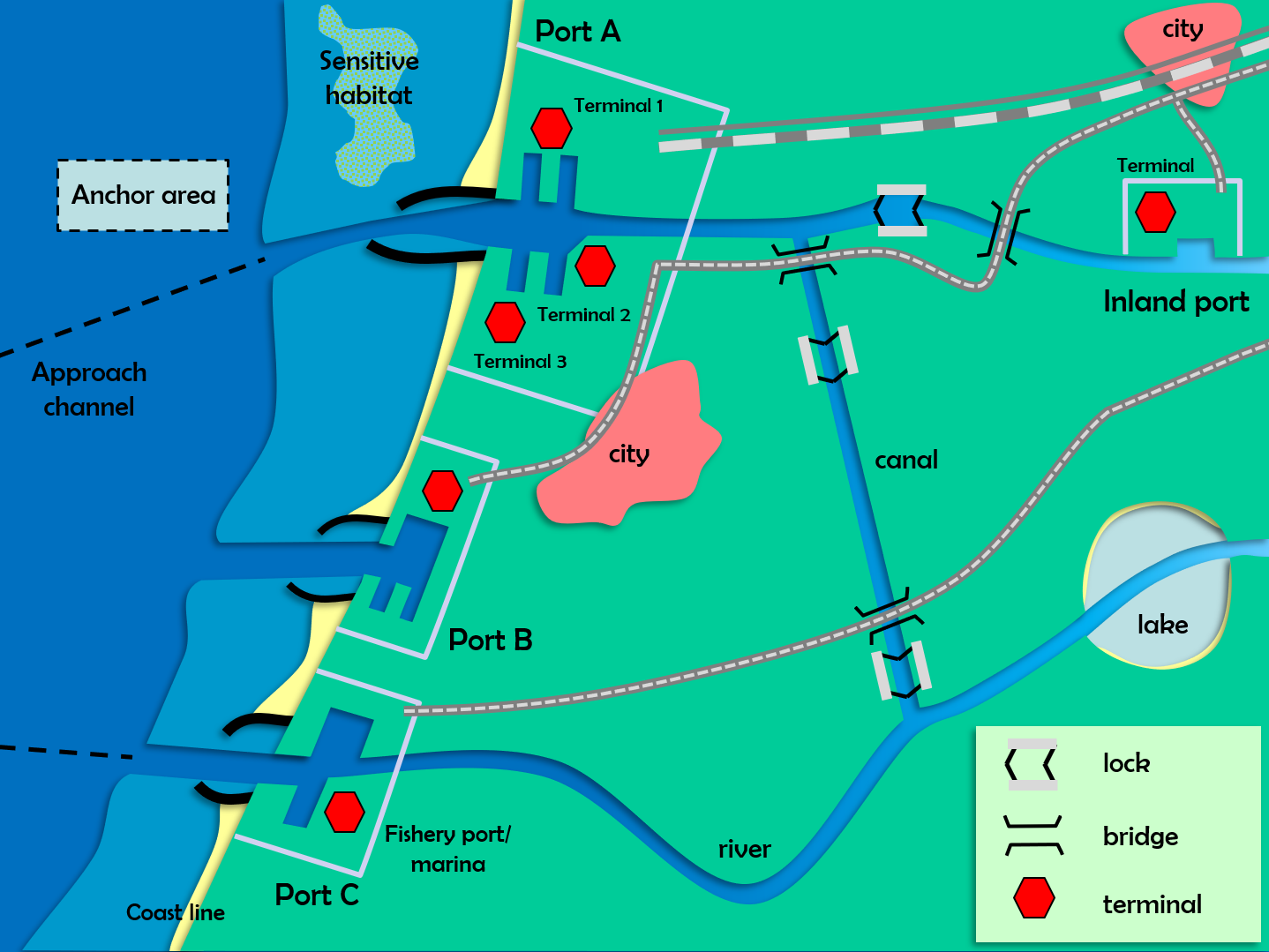Ports and Waterways Coding Lab
The Ports and Waterways chair at TU Delft is dedicated to deliver excellent academic research and education on the analysis, design and management of competitive, safe and sustainable waterborne supply chains.

Design of Ports and Waterways systems is a complex challenge that requires simulation and economic evaluation to support decision making, especially when non-linear feedbacks make it impossible to rely on intuition.
The Ports and Waterways discipline focuses on the effective analysis, design and management of (water) infrastructure (system as a whole and/or its individual system elements), while considering:
- nautical traffic (nodes and edges or free routing)
- logistical processes (cargo)
- environmental/physical conditions (natural, man made)
- engineering knowledge (energy use, sound, spill, etc.)
Analyses should go beyond one single-objective business case (although this is an important base case). Different stakeholders find different aspects important. An integral approach is needed.
Posts on Ports & Waterways Coding Lab:
- MSc Thesis: Hydrogen Import Terminal
- OpenTNSim v0.0.1 released!
- OpenTISim v0.4.0 released!
- MSc Thesis: Assessing emission performance of dredging projects
- OpenCLSim v0.3.0 released!
- Ports and Waterways Coding Lab visits RHDHV
- MSc Thesis: Measures for the reduction of CO2 emissions, by the inland shipping fleet, on the Rotterdam-Antwerp corridor
- Ports and Waterways Coding Lab at MTBS
- Ports and Waterways Coding Lab is organised at Deltares
- MSc Thesis: Terminal Design Optimization: Adaptive agribulk terminal planning in light of an uncertain future
- Ports and Waterways Coding Lab at Van Oord
- Ports and Waterways Coding Lab has its first sprint at TU Delft
